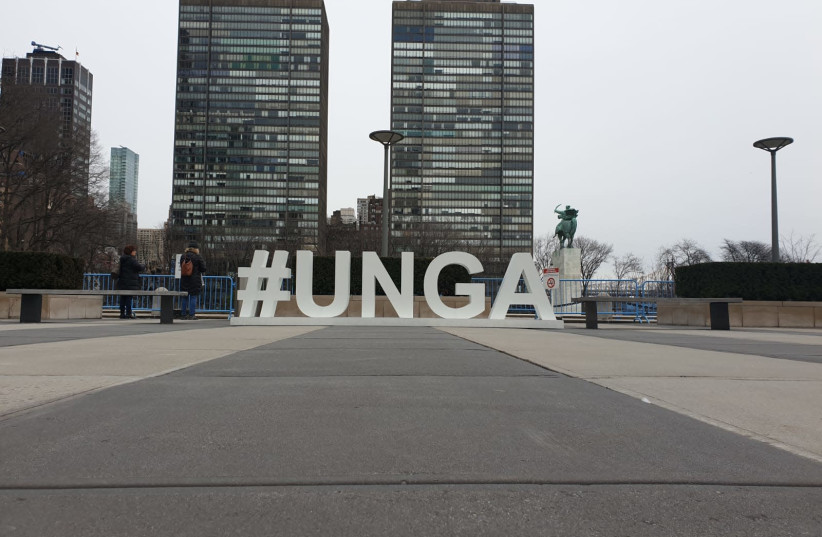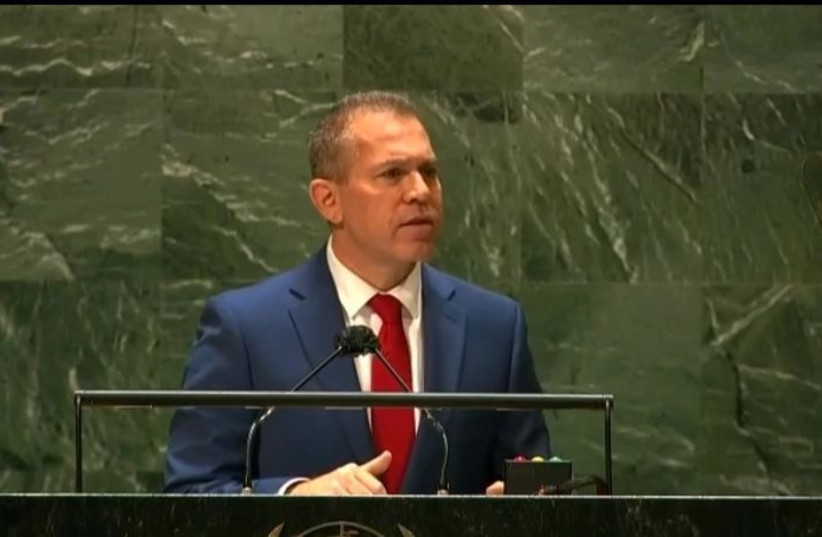The UNGA asked that countries in the region “place all their nuclear activities under International Atomic Energy Agency safeguards.”

Israel was the only country to oppose the United Nations General Assembly call for a Middle East Nuclear Free Zone.
The resolution was approved Monday in New York, with a 178-1 vote with two abstentions; the United States and Cameroon.
Iran, which the international community fears is on its way to becoming a nuclear threshold state, supported the text.
The resolution calls on all Middle East countries “not to develop, produce, test or otherwise acquire nuclear weapons or permit the stationing on their territories, or territories under their control, of nuclear weapons or nuclear explosive devices.”
The UNGA asked that countries in the region “place all their nuclear activities under International Atomic Energy Agency safeguards.” It also called for Middle East countries to adhere to the Treaty for the Non-Proliferation of Nuclear Weapons.

Israel is not a party to the non-proliferation treaty. It is considered to be one of nine nations to possess nuclear weapons, along with the United States, Russia, the United Kingdom, France, China, India, Pakistan and North Korea. Israel has never admitted to having such weapons.
The UNGA approved a second resolution 157-6 with 24 abstentions, on “the risk of nuclear proliferation in the Middle East.”
Countries that opposed the text were Canada, Israel, Marshall Islands, Micronesia, Palau and the United States.
Countries that abstained were: Albania, Australia, Belgium, Cameroon, Cote D’Ivoire, Croatia, Czech Republic, Denmark, Estonia, France, Georgia, Germany, Hungary, India, Italy, Latvia, Lithuania, Luxembourg, Monaco, Netherlands, Panama, Poland, Romania and the United Kingdom.
This text, unlike the first one, specially calls on Israel to sign the non-proliferation treaty and to place its nuclear facilities under IAEA inspection.
The resolution recalled that “Israel remains the only country in the Middle East that has not yet become a party to the treaty.”
In a UNGA conference on Middle East nuclear disarmament held Friday, the Iranian representative said that a nuclear free Middle East zone can’t be established “as long as Israel refuses to participate while the US supports it and does not cooperate with” the initiative.
In a debate on the matter at the UNGA in October, Israel’s Ambassador to the UN in New York Gilad Erdan said, “The Non-Proliferation Treaty in itself does not provide a remedy for the unique security challenges of the region, let alone the repeated violations of the treaty by some of its member states. Four of the five cases of serious violations of the NPT took place in the Middle East.”
As reported by The Jerusalem Post
